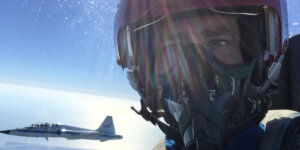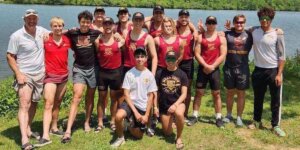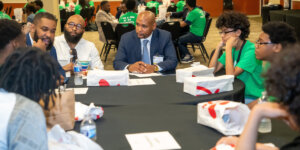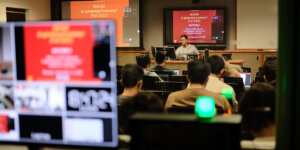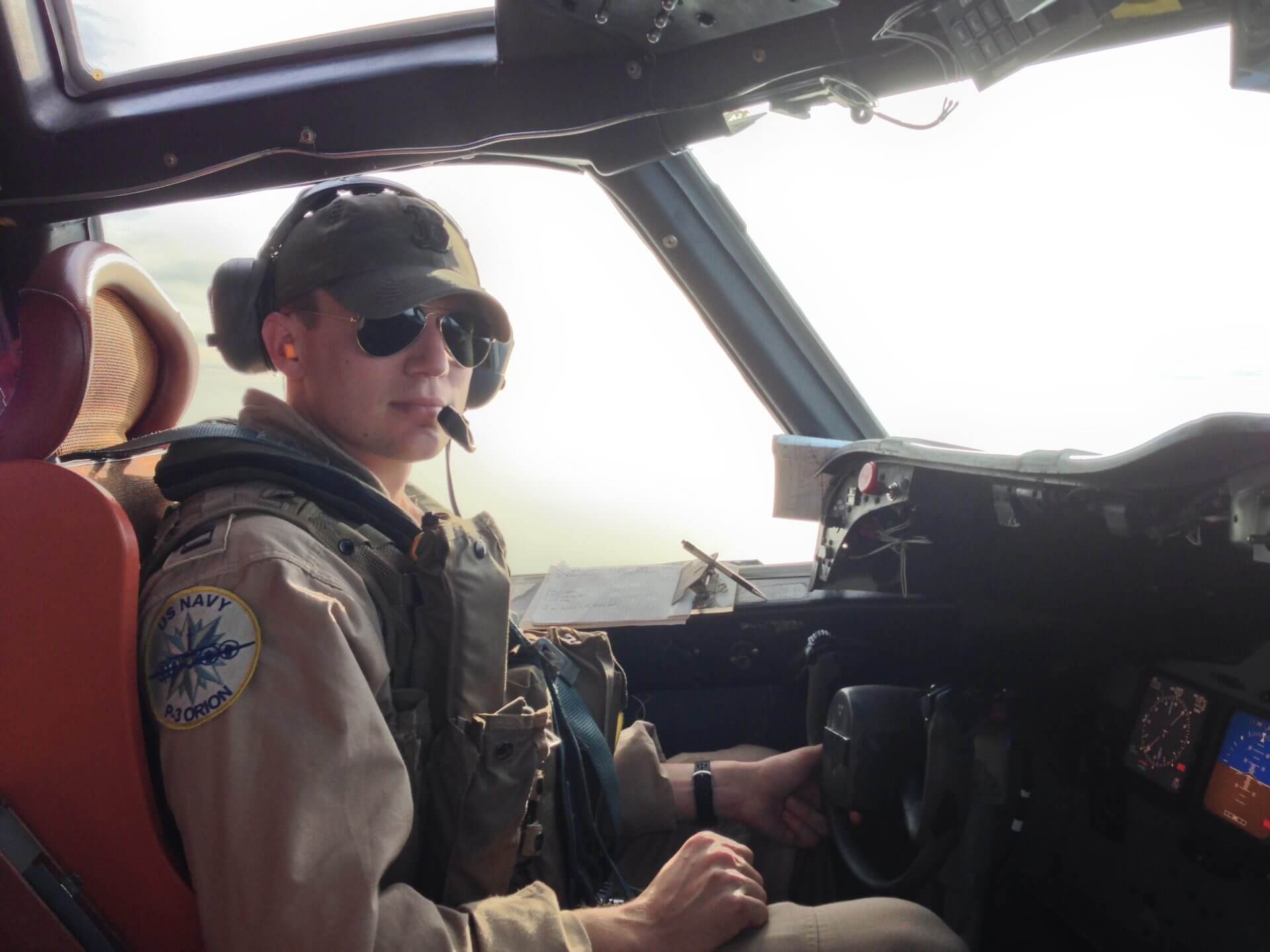
Naval Aviator Jonathan Messer is currently studying for a masters in astronautical engineering Photo courtesy of Jonathan Messer
On January 17, 2020, the aircraft carrier USS Dwight D. Eisenhower departed Norfolk Naval Station with a company roughly the size of a small city, to complete pre-deployment graduation exercises in the Atlantic Ocean. Little did they know that they would be sailing for 206 days straight into history.
Among the crew was Assistant Air Operations Officer, Naval Aviator and USC Viterbi alumnus, Jonathan Messer, overseeing the movement of 554 personnel and 324,000 pounds of material to ensure the Eisenhower Carrier Strike Group sailed smoothly. Messer, who has over 2,000 military flight hours to his name, wasn’t prepared for what came next.
“As we pulled through the Suez Canal, we got word of a virus spreading on the shores,” Messer said. “That was the last time we were in sight of land until we knew it was safe to return home.”
As COVID-19 spread rapidly through the Mediterranean and then the world, Navy commanders ordered Ike to keep moving and avoid docking at any port in order to create a safe bubble around its nearly 5,000 crew. Other ships were battling outbreaks, including the USS Theodore Roosevelt, which got sidelined in Guam.

The aircraft carrier USS Dwight D. Eisenhower transits the Persian Gulf on June 12, 2020. Photo by U.S. Navy Mass Communication Specialist 1st Class Aaron Bewke
“The whole world was trying to figure out what this virus was and so were we in the middle of the ocean,” Messer said. “Asking ourselves: ‘does it live on the cardboard boxes of food and supplies coming from shore? And if so, for how long?”
The long deployment put enormous strain on the crew and the equipment. According to the Navy, the sailors assigned to the strike group and the air wing had to undertake more than 500 complex repairs to systems that ordinarily would have required fly-in technical support or in-depot service.
“It’s a great example of the next generation responding to adversity,” Messer said. “We had to engineer systems on the fly, so my USC engineering education came to the rescue.”
Messer earned his first master of science in systems architecting and engineering from USC Viterbi in 2018. He is currently studying for a second master’s in astronautical engineering.
So, what do Navy officers do during a 200-days voyage besides keeping our world safe?
“We kept the spirits going,” Messer said. “Every now and then we’d have Bingo night and “steel beach picnics” when we can wear civilian clothes and barbecue on the flight deck.
They also had their own version of March madness with a slam dunk basketball contest. Some sailors competed to see who could grow the ugliest mustache.
“But we spent a lot of time worrying about you guys, about our families, reading reports on what the virus was doing to the world,” Messer said.
When he eventually flew off the ship on June 3rd to be reunited with his wife, Gina Messer, a Navy Lieutenant Commander, and start his second graduate program at USC Viterbi, Messer was relieved to have his feet touch American soil.
“We didn’t set out to break records but I am proud of this generation and what we could pull off,” Messer said.
Ike finally pulled into port in Norfolk, Virginia on August 9th after 7 continuous months at sea, setting a U.S. Navy record for the longest continuous time at sea. The previous 160-day record was set in February 2002 by the USS Theodore Roosevelt, early in the Afghanistan war.
Messer had been in similar complex Navy operations that tested the resolve of his generation: practicing freedom of navigation in the South China Sea, counter-narcotics in South and Central America, maintaining overhead situational awareness during the evacuation of U.S. State Department personnel ahead of ISIS’s advance into Iraq, training 21 American and ally student pilots and providing the logistical support to provide 390,000 people medical services in response to the 2018 humanitarian crisis in Venezuela. His engineering education was again put to the test.
“I was an air logistics planner during that humanitarian mission and we basically had to “build the plane as we flew it” in terms of coordinating and scheduling doctors ashore and moving medical equipment,” said Messer who had to create timing tables for watercraft and aircraft, maximizing throughout for each. This translated into more doctors and nurses from the Hosptial ship Comfort, being able to help the thousands of refugees pouring in from Venezuela into nearby Colombia, Honduras, Ecuador and Peru.
“What I learned is that even with our state-of-the-art communications technology you simply can’t know everything at all times, so you must have faith in other people,” Messer said.
His brothers and sisters in uniform did not let him down.
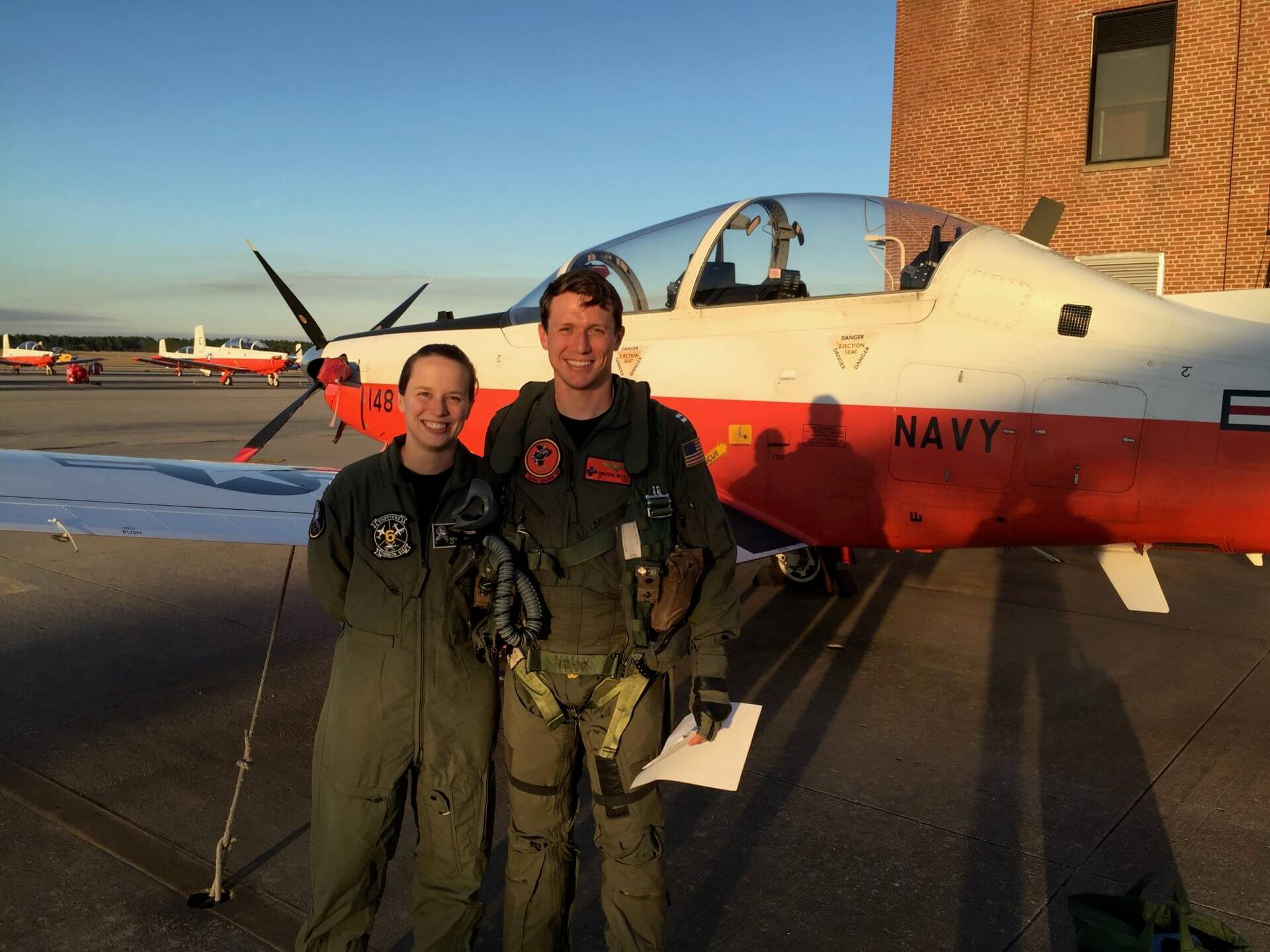
Jonathan Messer and his wife Navy Lt. Commander Gina Messer Photo Courtesy Jonathan Messer
Messer looks forward to continuing his service through the Navy Reserve with the Navy’s Space Cadre. Meanwhile at USC Viterbi, he is delving deeper into understanding how satellite systems are designed, hoping to one day take his experience into outer space, programming or managing an entire network of satellites. In what little time he has in between work, school and service, he uses his experience as a Navy pilot instructor to mentor undergraduate students, and graduate veteran students alike, navigating engineering.
“Growing up an Army brat to a West Point graduate, multiple generations of military service, and a member of the Boy Scouts, I have been raised to think that service to country is merely a fact of life for myself,” said Messer whose father, James Messer served in the U.S. Army for 30 years retiring as a Colonel and whose brother William Messer is a Marine Staff Sergeant. “I am proud that I was able to contribute a small measure to that legacy.”
Published on November 7th, 2020
Last updated on November 11th, 2020




